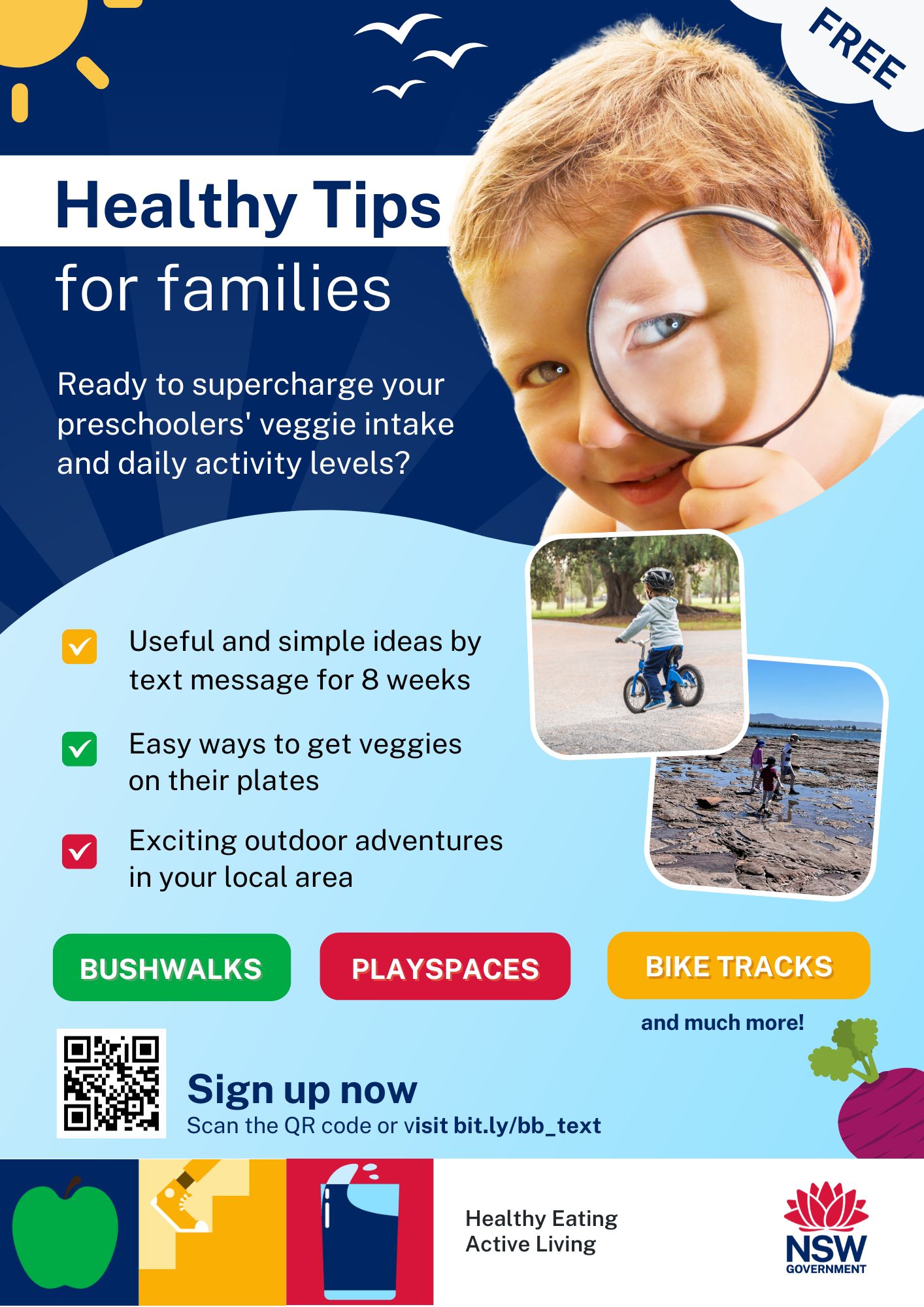Has your child had a growth check recently?
Routine growth assessments measure a child’s height and weight to see how a child is growing. Knowing how a child is growing can help health professionals assess a child’s overall health. Your child’s health professional will also consider factors like genetics, family history, and previous growth checks.
If you or your child’s health professional have concerns about your child’s growth (above the 85th centile on a BMI-for-age chart), you might feel unsure of your next steps. Healthy kids come in all shapes and sizes so the focus should not be on weight loss as your child is still growing. Instead, focus on developing healthy eating and activity habits which can have life-long benefits.
Click on the links below for more information and ideas. Join the Healthy Tips for Families Program!
Join the Healthy Tips for Families program
The Healthy Tips for Families program is a FREE 8-week text message program for parents and carers with preschool-aged children.
The messages contain simple health tips, advice and inspiration to help keep the whole family happy and healthy.
You can opt out at any time.
Sign up now!
Speak with your GP
Speak to your GP about the results of your child’s growth assessment.
They can:
- Answer questions you have about growth checks.
- Provide further advice around weight management.
- Track your child’s growth over time.
- Decide if a clinical assessment and further tests are needed.
You can ask your GP to:
- Refer your child for more specialised advice around healthy eating and physical activity.
- Recommend an Accredited Practising Dietitian (food and nutrition) or you can search for one here. Some dietitians also have telehealth options available.
- Recommend an Exercise Physiologist (physical activity and movement) or you can search for one yourself here.
- Provide a GP Management Plan to access reduced fees for a Dietitian or an Exercise Physiologist. The number of reduced-fee visits will depend on the plan.
Note: You can self-refer to a Dietitian or an Exercise Physiologist if you do not have a GP Management Plan but you will not be able to access the reduced fees this way.
Contact your private health fund
Ask if they cover visits to a Dietitian or an Exercise Physiologist.
NDIS
If your child is eligible for NDIS, they may be eligible for subsidised fees for allied health services (e.g. Dietitian & Exercise Physiologists).
Come to an online session of Growing Healthy Eaters
It is normal for meal times to be challenging when you have young children. However there are things you can put in place to make this a little easier for you and your family. Our Growing Healthy Eaters webinars aim to take some of the stress out of feeding young children. These sessions are designed for parents and carers with children between the ages of 12 months and 5 years.
Topics covered include:
- What and how much food children need
- Helping your child learn to eat
- Picky eating
- Responsive eating
- Tips to take the stress out of meal times
Register for a session.
Healthy eating and lifestyle tips
Healthy eating |
|
Useful links: |
|
Get moving |
|
Useful links: |
|
Screen time |
|
Useful links: |
|
Sleep |
|
Useful links: |
Further reading and helpful websites
- Higher Weight and Mental Health in Children: Parent Guide
- Confident Body, Confident Child
- Raising Children - Child Obesity
- Talking to your children about weight
- Support for families
- No Money No Time
- Cancer Council Healthy Lunchbox
- Healthy Eating Active Living NSW
- Healthy Habits for Children Fact Sheets


